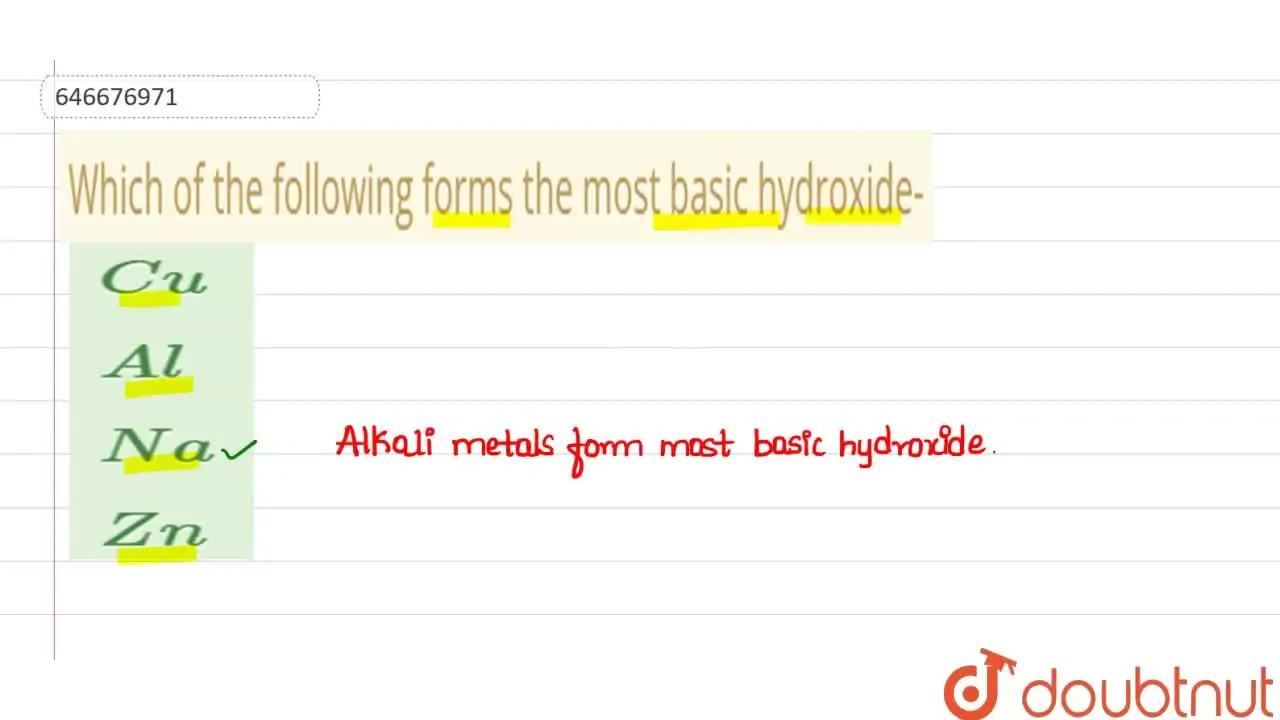Which of the following forms the most basic hydroxide-
A
Cu
B
Al
C
Na
D
Zn
Video Solution
Text Solution
The correct Answer is:C
Basicity of hydroxide ∝1EN∝1IP
|
Updated on:21/07/2023
Related Playlists
- BOOK - ALLENCHAPTER - S-BLOCK ELEMENTS EXERCISE - EXERCISE -1 (B)1videos
S-BLOCK ELEMENTS
- BOOK - ALLENCHAPTER - S-BLOCK ELEMENTS EXERCISE - EXERCISE -21videos
S-BLOCK ELEMENTS
- BOOK - ALLENCHAPTER - S-BLOCK ELEMENTS EXERCISE - EXERCISE -31videos
S-BLOCK ELEMENTS
- BOOK - ALLENCHAPTER - s-Block element EXERCISE - All Questions14videos
s-Block element
- BOOK - ALLENCHAPTER - SOLUTIONSEXERCISE - EXERCISE -05 [B]22videos
SOLUTIONS
Similar Questions
Which of the following is the most basic oxide ?
View SolutionWhich one of the followign is the most basic ?
View SolutionWhich of the follwing is the most basic oxide?
View SolutionWhich of the following oxides is most basic ?
View SolutionWhich of the following compounds is most basics
View SolutionWhich of the following is most basic ?
View SolutionWhich of the following is most basic ?
View SolutionWhich one of the following forms a basic oxide?
View SolutionWhich of the following is most basic?
View SolutionWhich of the following is most basic
View Solution


